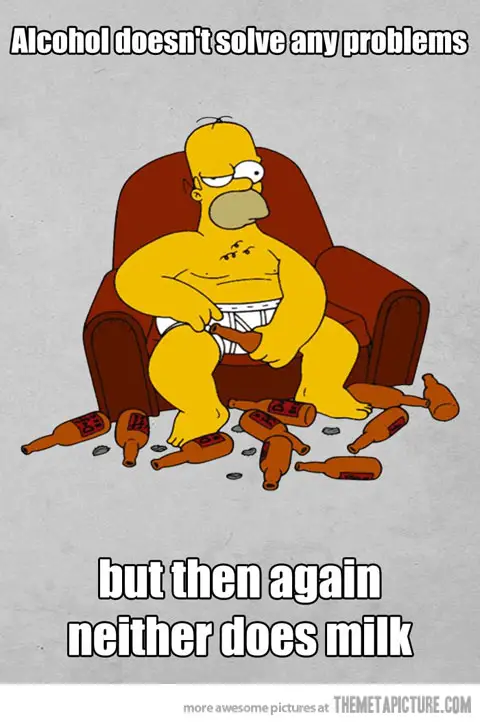Some People Too Lazy To Add Milk To Corn Flakes

Source: The Meta Picture
Less that one third of Americans in their early twenties eat corn flakes for breakfast. These are the results of a survey that was intended to measure the habits of young Americans. Instead of measuring their habits it has found that the vast majority of them are too lazy to add milk to corn flakes.
Not all of them have cited laziness as the primary cause of their behavior, however. Some young people have said that they are pretending they don’t have time. Others said that they are pissed at their parents and so won’t do anything that their parents do, even if means saying “no” to corn flakes they love.
Researches point out that perhaps a bad economy is to blame. One of them, Andrew Dooper, said: “How the heck you add milk to corn flakes when the economy is so bad? You’re so worried your hands shake and you spill the milk.”
Other researchers, however, have refuted Andrew Dooper’s theory. They stated:
Young Americans skip both milk and corn flakes. Instead they choose to eat some crappy fast food that gives them health problems.
This of course benefits the multi-billion-dollar healthcare industry, so United States’ Congressmen are convinced this is actually good for US economy. How could they not be convinced by big money? They have been found to be dumber than dolphins. This overshadows even the most retarded achievements of George W. Bush.
Kellogg Company – a major producer of corn flakes in the United States – have stated that they are going to lobby the crap out of United States’ Congress. Their lobbying efforts are going to focus on receiving oversized subsidies for lost profits:
Those a-holes not eating our corn flakes are going to pay for this.
Will Kellogg Company lobby the crap out of Congress? Will they force an average American consumer to pay for their lost profits? There questions are stupid. They definitely will.
This satire has been inspired by Time Magazine’s article “10 Things Americans Have Suddenly Stopped Buying“. It has reported that “In one recent four-week period, cereal sales were down 7%, and cereal giant Kellogg’s sales decreased 10%”. From that data, we have made some grossly inaccurate conclusions.


















